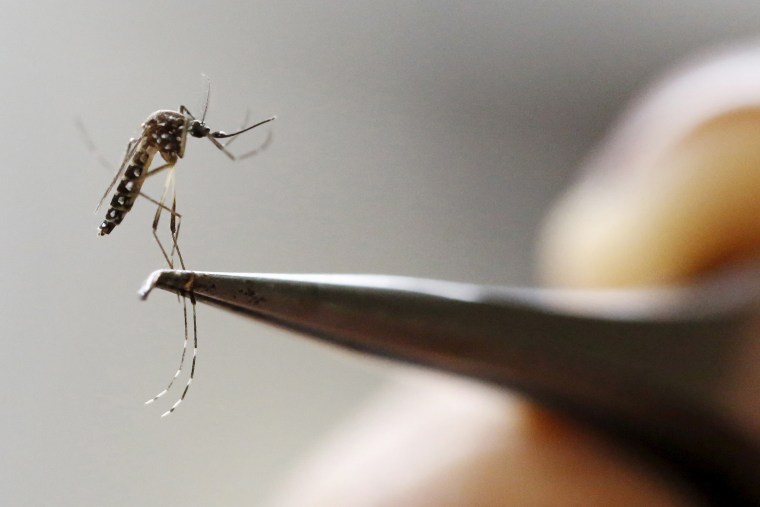Sen. Marco Rubio (R-Fla.) may be among the Senate's most far-right members, but when it comes to a federal response to the Zika virus threat, the Florida Republican finds himself in strong agreement with President Obama and his administration. Rubio yesterday condemned the inadequacies of the House GOP's Zika bill and pleaded with lawmakers to start taking the matter seriously.
"I urge the American people to make next week a tough one on those who are home from Congress," Rubio said, referring to the latest in a series of breaks congressional Republicans have scheduled for themselves.
But given what's unfolding on the other side of Capitol Hill, the senator may want to have a chat with the Speaker of the House.
Yesterday afternoon, Speaker Paul Ryan (R-Wis.) published a Twitter message asking people to retweet a message: "Mosquitoes carrying Zika must be killed." It included a link to a press statement from the Speaker's office featuring Ryan's new plan to address the public-health threat: weakening EPA regulations of pesticides.
It was at this point that the House Republicans' response to the Zika threat made the transition from reckless to offensive. The Huffington Post highlighted the most glaring problem with the GOP's plan:
While eliminating the clean water protections would make life easier for mosquito sprayers in some respects, environmental advocates say the restrictions on spraying are entirely irrelevant to a potential Zika outbreak for several reasons. First among them is that if one particular pesticide has polluted a certain lake or stream, there are other options, said Mae Wu, a policy expert with the Natural Resources Defense Council.... On top of that, the clean water regulations apply only to areas larger than 6,400 acres. And if there is an outbreak, the rules specify that mosquito control authorities can act immediately, and get any needed permits after the fact.
The New York Times added that exceptions to EPA regulations "already exist for emergency situations like fighting Zika."
Making matters slightly worse, Paul Ryan's statement said policymakers should heed the recommendations of the Center for Disease Control -- which might make more sense if Paul Ryan weren't ignoring the CDC's pleas to Congress to pass the Obama administration's Zika response plan.
Keep in mind, as we discussed last week, the White House has been waiting since February for Congress to act on a $1.9 billion Zika bill, which House Republicans have refused to consider for reasons they have not explained. Instead, GOP House members have passed a bill that's one-third the size and redirects money currently being used to combat the Ebola virus.
Or put another way, the House Republican majority, eager to prove how little it cares about the public-health threat, doesn't want to make necessary investments, but does want to undermine environmental safeguards.
Dr. Thomas Frieden, the director of the CDC, told the New York Times yesterday, "This is no way to fight an epidemic. Three months is an eternity for control of an outbreak. There is a narrow window of opportunity here and it's closing. Every day that passes makes it harder to stop Zika."
Under the current GOP plan, it may be "well into the summer, or even longer" before Congress approves an inadequate final bill to address the Zika virus.
Ironically, in February, Senate Majority Leader Mitch McConnell (R-Ky.) declared, "We need to get out in front of the Zika virus." It'd be hilarious if the public-health threat weren't so serious.
